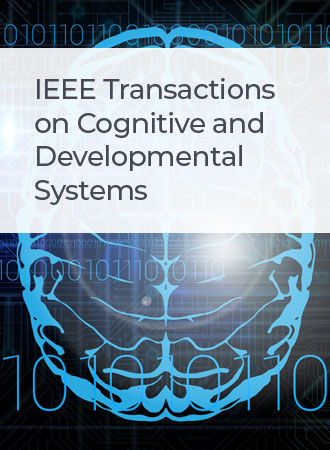任务参与建模以调节基于强化学习的解码用于在线脑控制
IF 4.9
3区 计算机科学
Q1 COMPUTER SCIENCE, ARTIFICIAL INTELLIGENCE
IEEE Transactions on Cognitive and Developmental Systems
Pub Date : 2024-11-05
DOI:10.1109/TCDS.2024.3492199
引用次数: 0
摘要
脑机接口(bmi)为瘫痪患者使用他们的大脑信号控制外部设备提供了重要的希望。一个挑战是,在在线大脑控制(BC)过程中,受试者可能不会完全沉浸在任务中,特别是当需要多个步骤才能实现目标时。解码器不加选择地将较少参与的试验作为训练数据,这可能会降低解码的准确性。在本文中,我们提出了一种替代的基于内核强化学习的解码器,该解码器通过连续参数更新进行在线训练。我们模拟了内侧前额叶皮层(mPFC)的神经活动,这是一个与奖励相关的大脑区域,代表任务参与。使用指数模型将这些信息整合到随机学习率中,该模型测量神经数据的相关性。在大鼠进行光标到达BC任务的实验中对所提出的算法进行了评估。研究发现,mPFC的神经活动包含参与信息,参与信息与试验反应时间呈负相关。此外,与没有任务投入建模的强化学习方法相比,我们提出的方法提高了训练效率。它使用一半的训练数据来达到与光标轨迹相同的重建精度。结果证明了RL框架在改进在线BC任务方面的潜力。本文章由计算机程序翻译,如有差异,请以英文原文为准。
Modeling Task Engagement to Regulate Reinforcement Learning-Based Decoding for Online Brain Control
Brain–machine interfaces (BMIs) offer significant promise for enabling paralyzed individuals to control external devices using their brain signals. One challenge is that during the online brain control (BC) process, subjects may not be completely immersed in the task, particularly when multiple steps are needed to achieve a goal. The decoder indiscriminately takes the less engaged trials as training data, which might decrease the decoding accuracy. In this article, we propose an alternative kernel RL-based decoder that trains online with continuous parameter update. We model neural activity from the medial prefrontal cortex (mPFC), a reward-related brain region, to represent task engagement. This information is incorporated into a stochastic learning rate using an exponential model, which measures the relevancy of neural data. The proposed algorithm was evaluated in the experiment where rats performed a cursor-reaching BC task. We found the neural activities from mPFC contained the engagement information which was negatively correlated with trial response time. Moreover, compared to the RL method without task engagement modeling, our proposed method enhanced the training efficiency. It used half of the training data to achieve the same reconstruction accuracy of the cursor trajectory. The results demonstrate the potential of our RL framework for improving online BC tasks.
求助全文
通过发布文献求助,成功后即可免费获取论文全文。
去求助
来源期刊

IEEE Transactions on Cognitive and Developmental Systems
Computer Science-Software
CiteScore
7.20
自引率
10.00%
发文量
170
期刊介绍:
The IEEE Transactions on Cognitive and Developmental Systems (TCDS) focuses on advances in the study of development and cognition in natural (humans, animals) and artificial (robots, agents) systems. It welcomes contributions from multiple related disciplines including cognitive systems, cognitive robotics, developmental and epigenetic robotics, autonomous and evolutionary robotics, social structures, multi-agent and artificial life systems, computational neuroscience, and developmental psychology. Articles on theoretical, computational, application-oriented, and experimental studies as well as reviews in these areas are considered.
 求助内容:
求助内容: 应助结果提醒方式:
应助结果提醒方式:


